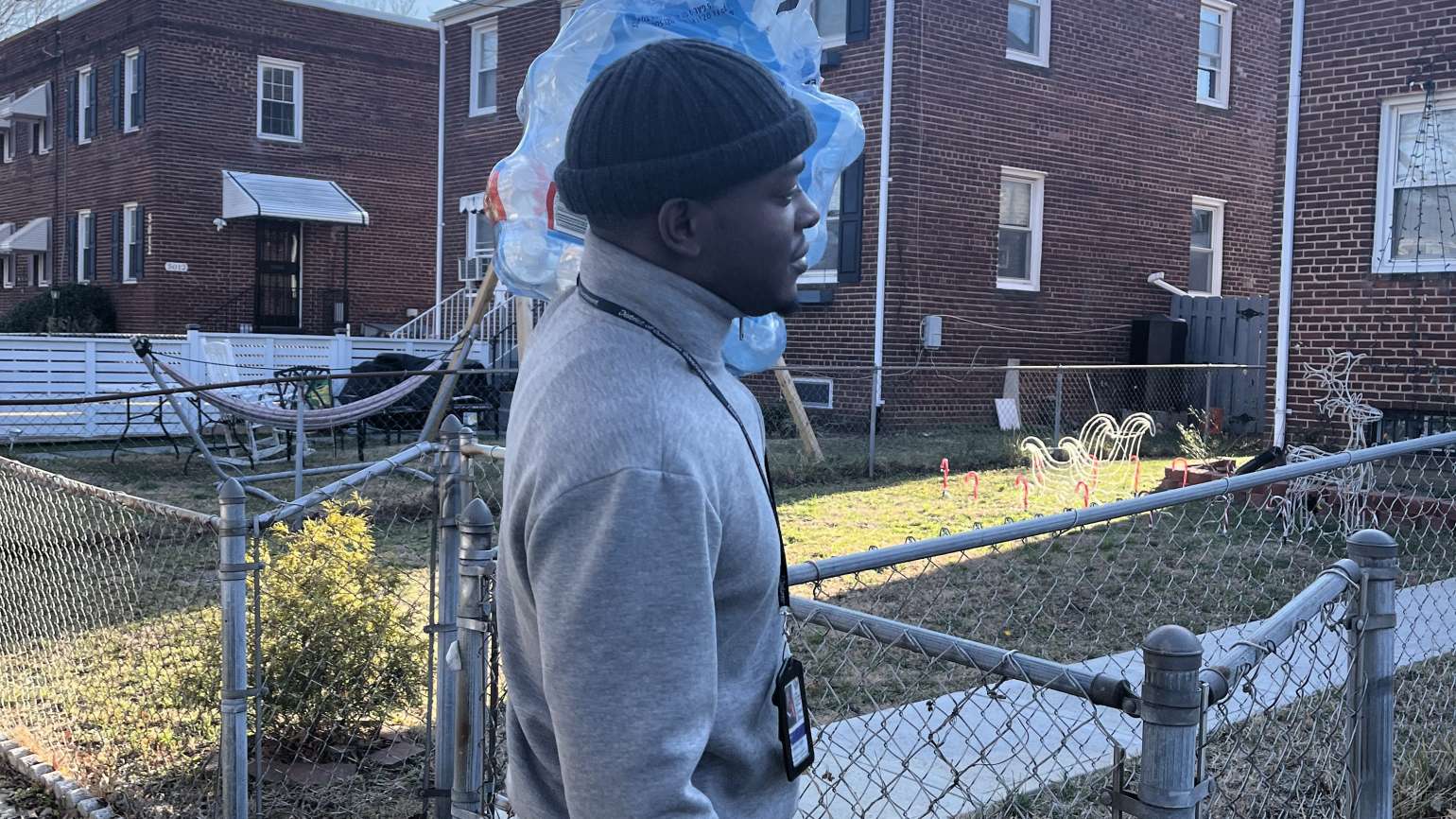Council of the District of Columbia
OFFICE OF WARD 5 COUNCILMEMBER ZACHARY PARKER
Memorandum
1350 Pennsylvania Avenue, NW, Washington, DC 20004
TO: Chairman Phil Mendelson
FROM: Councilmember Zachary Parker
RE: Notice of Intent to Move Amendments at the July 28 Legislative Meeting
DATE: July 25, 2025
I intend to move an amendment to B26-0265, the Fiscal Year 2026 Budget Support Act of 2025 and an accompanying amendment to B26-0260, the Fiscal Year 2026 Local Budget Act of 2025 at the July 28, 2025 Legislative Meeting.
Together, these amendments accomplish six things:
First, they strike the Mayor’s proposed repeal of the District Child Tax Credit and repositions it to focus on families and children excluded from the full benefit of the federal child tax credit.
The full benefit of the federal child tax credit only accrues to taxpayers with an adjusted gross income of between approximately $75,000 and $500,000 because a portion of the benefit is nonrefundable and federal law reduces the refundable benefit available for taxpayers with low income. Accordingly, there are stark differences in the average federal child tax credit claimed by taxpayers across different income bands.
This disparity will likely increase slightly with the enactment of Public Law No: 119-21 (2025), which establishes a permanent federal child tax credit of $2,200 but leaves in place existing restrictions on benefits to taxpayers with lower incomes and establishes additional requirements for claiming the benefit.
Second, these amendments raise revenue by implementing a surcharge on capital gains and closing a tax loophole that incentivizes high income taxpayers to claim income through unincorporated pass-through businesses to avoid paying their proper personal income tax rate.
Capital Gains and qualified dividends (wealth-generated income) are taxed favorably on the federal level. For the highest incomes, work-income is taxed around 35% or 37%, while wealth-generated income is taxed at 20%. This is a 15%+ advantage for wealth-generated income. This proposal is a way to marginally offset this advantage towards wealth-generated income, but only for those with significant amounts of it within a tax year. Additionally, this proposal closes the loophole where wealth and wealth-generated income can effectively lower their tax rate by routing their personal income through an unincorporated business (UB), also known as a pass-through business. The proposal closes this loophole by converting the existing personal income deduction on UB income into an income tax credit for any UB tax paid.
Given rising wealth inequality and its detrimental effects on economic growth, as well as the federal context increasing the structural advantages of wealth and functionally increasing taxes on the poor, our city needs to balance our tax code in small ways to help make sure we are taking care of our most vulnerable children and families.
Third, these amendments establish a permanent revenue and expenditure commission.
As many councilmembers have spoken to in recent budget work sessions, there is a need to ramp up the District’s efforts to control spending and rationalize our tax policy debate. Unfortunately, the mechanisms to accomplish both have faltered. A permanent revenue and expenditure commission would serve as an expert standing body to provide recommendations to the Mayor and Council on revisions to the District’s tax code and other significant non-tax revenue sources; revisions to agency operations, contracts, and capital investments that could achieve existing results or policy objectives with reduced expenditures; and revisions to the District’s contracting and procurement processes that could improve the value and longevity of District assets and services or better protect the District from fraud, waste, and abuse by contractors.
Fourth, these fund the Auditor components of the Recidivism Reduction at DYRS Amendment Act of 2024, effective Mar 28, 2025 (D.C. Law 25-321; 72 DCR 1117).
Although the Committee on Youth Affairs funded components of the Recidivism Reduction, Oversight, and Accountability for DYRS Act of 2024 (ROAD Act) in committee, there remains an urgent need to fund the oversight functions this legislation places at the Office of the Auditor for the District of Columbia. Funding for the Office of Independent Juvenile Justice Facilities Oversight (OIJJFO) is expiring at the end of this fiscal year, which would leave the District’s secure juvenile facilities without an independent monitor for the first time since the settlement of the Jerry M. litigation.
This could scarcely be a worse time for the Council to defund oversight of the Department of Youth Rehabilitation Services. Youth Services Center (YSC), DYRS’s 98-bed facility that houses youth detained pretrial and those charged as adults (as well as those committed to DYRS custody and awaiting placement) has been at or over capacity for most of 2025.
When the facility is over capacity, youth are detained in parts of the facility that are not designed for multi-day use; time outside, services, and other activities are limited; staff are overburdened; and risks to youth increase. This month alone, two teenagers in DYRS custody were hospitalized after being assaulted at YSC. One of them, a transgender girl housed in a boys’ unit, suffered a fractured jaw.
By funding the Auditor components of the ROAD Act, the Council can ensure that the legislation has the intended effect of reducing time spent at YSC (and by extension reducing the population of juveniles detained there) and provided much needed oversight of YSC.
Fifth, this amendment (along with a corresponding LBA amendment) funds approximately 102 additional permanent supportive housing vouchers for individuals as well as the additional staff at the Department of Human Services that are required to process those vouchers.
One of the most acute gaps in the FY 26 budget is the lack of investment in housing supports for individuals who are chronically homeless and at imminent risk of becoming homeless. There are currently around 200 individuals in rapid re-housing for individuals who could lease in place if they received a voucher.
Finally, the amendment (along with a corresponding LBA amendment) restores full funding for CHAMPS (the Child and Adolescent Mobile Psychiatric Service).
ChAMPS plays an essential role in providing immediate, around-the-clock crisis intervention and mental health support for youth and families throughout the District. The program meets youth in crisis wherever they are, at home, school, or anywhere in our community. The program serves as a vital lifeline for children experiencing psychiatric emergencies, helping to stabilize crises, reduce unnecessary hospitalizations, and provide trauma-informed care in the community. The budget for the Department of Behavioral Health currently cuts funding for ChAMPS in half, which means that service will either only be available for four hours a day or (more likely) discontinued entirely because the provider and its employees cannot sustain the service on a part-time basis.
Drafts of both amendments are attached. For any questions, please contact Conor Shaw at cshaw@dccouncil.gov or Sam Bonar atsbonar@dccouncil.gov.
cc: Members, Council of the District of Columbia
Office of the Secretary
Office of the General Counsel
Office of the Budget Director
Mayor’s Office of Policy and Legislative Affairs




